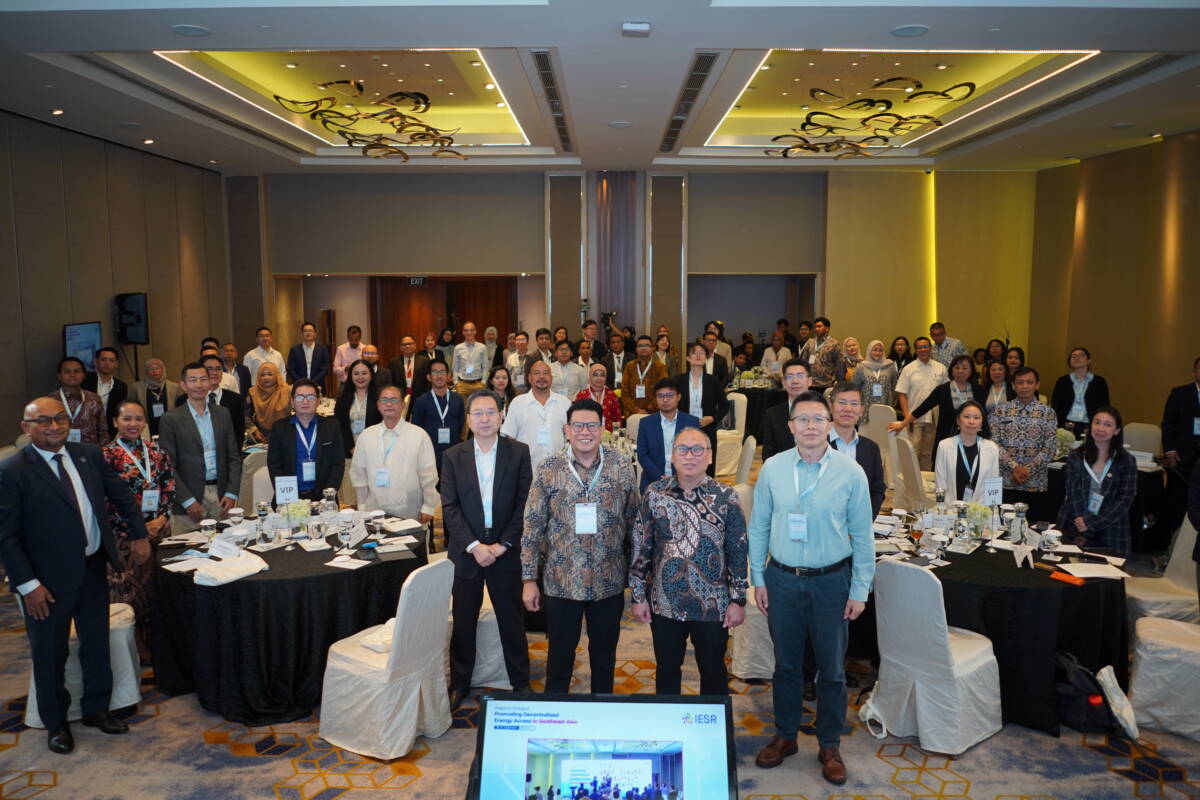Jakarta, April 22, 2025 – Southeast Asia is witnessing significant economic growth that has resulted in a drastic increase in energy demand. With its geographical conditions consisting of an archipelago, a decentralized energy generation system is a necessity to ensure a reliable and quality energy supply for all communities. Southeast Asia is currently still dominated by centralized fossil-based power plants. This is a challenge in developing power plants in rural areas.
Ji Zou, CEO and President of Energy Foundation China, in his opening remarks at the Regional Dialogue: Promoting Decentralized Energy Access in Southeast Asia organized by the Institute for Essential Services Reform (IESR), stated that a decentralized power generation system has the potential to attract investment, accelerate technological innovation, and create new business models. By opening up these opportunities, a decentralized energy system not only supports ASEAN’s ambitious transition goals but also lays the foundation for long-term economic prosperity and energy security.
“To capture this opportunity, we must answer several things such as what kind of policy framework is appropriate, what funding innovations are needed, and how to ensure the participation of the surrounding community in the projects we create,” explained Zou.
Fabby Tumiwa, Executive Director of the Institute for Essential Services Reform (IESR), Indonesia, explained that the Southeast Asian region can be a pioneer in the development of decentralized power generation systems.
“By optimizing our geographical diversity, community structure, and economic aspirations (ASEAN), we can find innovative approaches for the development of decentralized energy systems,” said Fabby.
Chrisnawan Anditya, Acting Head of the Bureau of Communication, Public Information Services, and Cooperation, Secretary General, Ministry of Energy and Mineral Resources of the Republic of Indonesia, said that in the Indonesian context, the government has carried out a number of initiatives, namely the distribution of APDAL (Electric Power Distribution Equipment) and the installation of SPEL (Electric Energy Charging Stations), the Patriot Energy program and Special Allocation Funds for 3T (underdeveloped, frontier, remote) areas.
“The challenges encountered during the implementation of these initiatives are the complex policy landscape and different stakeholder conditions in each region, requiring us to make adjustments in each location,” he said.
Cecilia Tam, Head of Energy Investment, International Energy Agency (IEA), stated that providing universal energy access including clean cooking requires a balanced combination of investment in the addition of renewable energy generation and the electricity grid, as well as the need for innovative financing instruments.
“For projects that have very high risks, they usually occur in areas with low access to electricity and infrastructure. Because of the low rate of return on capital, we really need to see large public-led investments, where concessional funding and grants take a large portion,” said Cecil.
Beni Suryadi, Senior Manager of ASEAN Plan of Action for Energy Cooperation, ASEAN Center for Energy (ACE) stated that access to electricity is one of the social inclusion efforts and needs to consider informal electricity access by people in rural areas.
“Collaboration between stakeholders, especially from the government and industry, must continue to be encouraged to address technology issues and align policies with current needs,” said Beni.
Michael Williamson, Chief of Section, Energy Division, United Nations Economic and Social Commission for Asia and the Pacific (UN ESCAP) explained that in addition to connectivity, access to electrical energy also needs to be considered in terms of quality. The tier system guidelines developed by the World Bank can be used as a guide.
“The tier system does not only talk about capacity but also about availability, reliability, quality, and affordability. The economic and social improvements we expect from electricity depend on achieving higher tiers. We will not achieve economic and social improvements with tier 1,” Michael emphasized.

